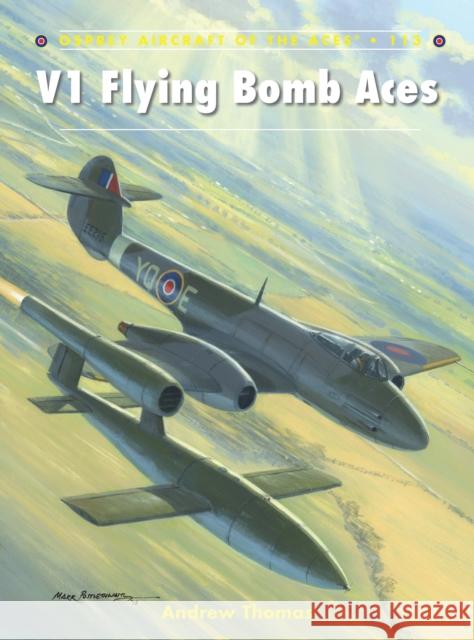V1 Flying Bomb Aces » książka
V1 Flying Bomb Aces
ISBN-13: 9781780962924 / Angielski / Miękka / 2013 / 96 str.
Shortly after the Allied landings in France the Germans unleashed the first of their so-called 'revenge weapons' against London, the V1 flying bomb. Launched from specially constructed sites in northern France, the fast, small, pulse-jet powered and pilotless aircraft were aimed at London with the intent of destroying civilian morale in order to force the British government to negotiate a peace. This dangerous new threat drew an immediate response, and the Air Defence of Great Britain (as Fighter Command had been temporarily renamed) established layers of defence that included a gun line and balloon barrage. The main element, however, were standing patrols by the first fighter wings of the highest performance fighters available - the new Tempest V and Griffon-powered Spitfire XIV. Other types were allocated too, most notably the Polish Mustang wing, while night defence was left in the capable hands of several dedicated Mosquito squadrons. Although pilotless, the V1 was no easy foe thanks to its speed, powerful warhead and sheer unpredictability. It required a high degree of flying skill and cool courage to bring one down, for if the pilot fired at too close a range the missile's warhead could explode, with catastrophic results for the chasing fighter. Many hundreds of V1s were fired throughout the summer of 1944, giving pilots plenty of opportunity to achieve five or more successes to become a V1 ace. Many already established aces also made claims against this new weapon. In total, 154 pilots became V1 aces, 25 of whom were also aces against manned aircraft. In addition, a further 35 RAF and nine USAAF aces also made some claims against V1s.











